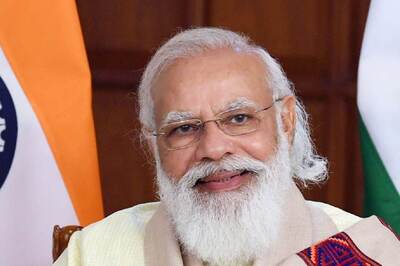
views
Mumbai/Singapore: Some of India's most indebted infrastructure and steel groups are considering so-called masala bonds to diversify their funding options as local banks tighten lending, investment banking sources with direct knowledge of the situation said.
The government in clarified how income from the rupee-denominated offshore bonds would be taxed, removing one uncertainty for firms at a time when India's banks - usually the first port of call for corporates - are reluctant to lend to sectors facing weak demand and heavy debt.
The global rupee bonds would be used to refinance costly loans or raise capital for new projects with little currency risk. Indian companies had previously issued bonds abroad, but these were in dollars and other currency.
Issuers have not flocked to offshore rupee bonds, largely because of the unclear tax rules. And no privately-owned Indian firm has yet tested the market's appetite.
NTPC Ltd, the country's largest state-run power company, will start marketing road shows on Monday.
"I am seeing a lot of interest even among the issuers who were thinking of issuing in US dollars. They are now thinking about masala bonds as there is no currency exposure," said Philip Lee, partner with Herbert Smith Freehills in Singapore.
Three investment bankers said GMR Infrastructure - a road, power and airport group whose net debt rose to $6.3 billion at end-September - could be one of the first to launch a masala bond to raise cash for airports.
JSW Group, which owns JSW Steel Ltd and power producer JSW Energy Ltd, is also exploring a masala bond for capital raising, they added.
"Definitely it's an option we are looking at," said Seshagiri Rao, chief financial officer of $11 billion JSW Group, adding the company would wait for a benchmark to be established.
All the bankers agreed to speak to Reuters on condition of anonymity as the plans are not yet public. A spokesman for GMR did not respond to an email seeking comment.
Masala bond issuance could hit $6 billion in the year to March 2016, or near a fifth of external commercial borrowings from domestic companies, analysts have estimated.
Indian companies have raised Rs 2.1 trillion via rupee bonds in the local market so far in 2015, up from Rs 1.9 trillion in the same period in 2014, according to Thomson Reuters data.
"Investors would like to see the best quality issuers come out first," said the Mumbai-based debt capital market head at a foreign bank. "If these deals do well...you will start seeing investors getting more adventurous in terms of the kind of risks they are willing to take."




















Comments
0 comment